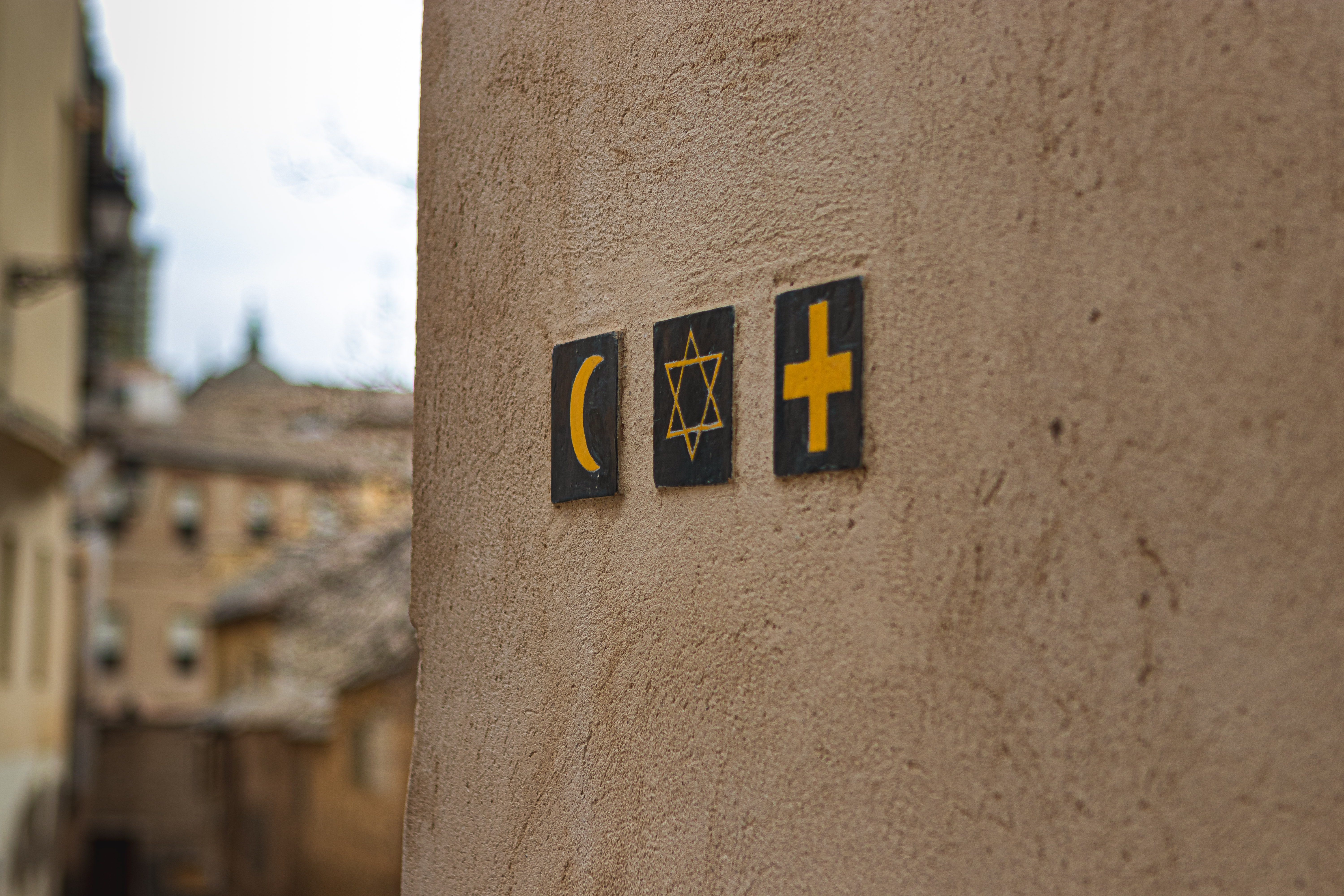![]()
Of the five largest world religions, three were born out of the Abrahamic tradition. Islam, Christianity and Judaism each hold to a monotheistic faith that takes some origin or lays claim to the religious figure and ancient near-Eastern patriarch, Abraham. However, despite their similar origin, these religions disagree on many of their fundamental tenets. Foremost warring Abrahamic religions include Islam and Christianity, which from the origin of the Muslim faith have fought as competitors, figuratively and literally, as long ago as the Middle Ages and as recently as the War on Terror. Their “eternal” conflict begs the question: just how dissimilar are these religions?
Well-equipped to answer this question is Dr. Dave Vila, Distinguished Professor of Religion and Philosophy at John Brown University. Dr. Vila has spent much time in the Islamic world, both for archaeological excavation and mere personal enjoyment. Furthermore, “much of Dr. Vila’s research and publications focus on early Christian-Muslim relations and the early development of Arabic Christianity,” per the JBU website. When asked about the theological differences between Islam and Christianity, Dr. Vila said they “are many and profound. Muslims deny the Trinity, the Incarnation, and the Atonement. These are the most important theological beliefs that Christians hold, and Muslims reject each one of them. This is a devastating blow to those who attempt to claim that ‘aren’t we all just saying the same thing?’ No, we are not.”
“Despite the profound differences between Christian and Muslim beliefs, the differences are not total,” Dr. Vila said. “There are also many areas where there is overlap or similarity between the beliefs of Christians and Muslims. For example, Muslims believe there is only one God, that God communicates to humanity, that God created the heavens and the earth (some even claim in 6 literal 24-hour days!), that God is sovereign and powerful, that God is merciful and compassionate, that Jesus was born of a virgin, that Jesus will come again at the end times, that history is moving toward God’s pre-appointed end, among many other similarities in belief. Though there are significant and profound differences between Christianity and Islam, there are also many similarities,” he said.
In terms of religious practice, the key difference between Islam and Christianity lies in the distinction between action and belief. “Muslims tend to emphasize orthopraxy (right actions) more than orthodoxy (right belief). And so, Muslims, like Jews, place a lot of emphasis on living lives that are pleasing to God – and doing so in the precise ways that God has laid out. The ritual prayer is supposed to happen five times a day while facing Mecca, though there are other forms of prayer as well. Muslims are enjoined to take care of the poor, the orphan, the widow, and others who are disadvantaged in society. They are enjoined to be generous and hospitable. They are enjoined to “command the good and forbid the evil” in society, and so are generally very active in fighting against prostitution, drug trafficking, and other forms of social ills. Muslims are generally very opposed to abortion on demand, same-sex marriages, and other values that many conservative Christians also hold dear,” Dr. Vila explained.
Again, due to his experience in the Muslim world, Dr. Vila is qualified to speak on similarities outside the realm of theology and religion. From his experience, both Christians and Muslims hold to larger-than-life stereotypes of one another. To many Muslims, Dr. Vila said, “everyone in the West is ‘Christian,’ and many American Evangelical Christians even speak of the United States as a ‘Christian nation.’ This leads many in the Muslim world to think that everything in the US reflects Christianity – sexual immorality and pornography, violence – gang violence, violence in schools, etc., alcohol abuse, and drug addiction. Many Muslims have no interest in becoming Christians because they see it as an immoral religion, far inferior to Islam. And on the other side, many Christians in the West assume that all Muslims want to kill us and destroy America. Many Christians in the West also assume that Islam is a cold, harsh religion without any place for love or devotion. On both sides, there are stereotypes,” he said.
How, then, should Christians approach Muslims and the Islamic faith? “It is important for Christians to help the Muslim world see that these stereotypes (that they often encounter in the media, do not reflect (I hope!) the Gospel,” said Dr. Vila. “The Apostle Paul calls Christians to ‘speak…the truth in love.’ And so, it is important that Christians try to foster healthy, truthful understanding between Christians and Muslims. The Gospel calls us to not less than this. How should Christians approach Muslims? That’s an easy one because Jesus was very clear on this: Love,” he said.
Photo courtesy of Noah Holm at Unsplash





